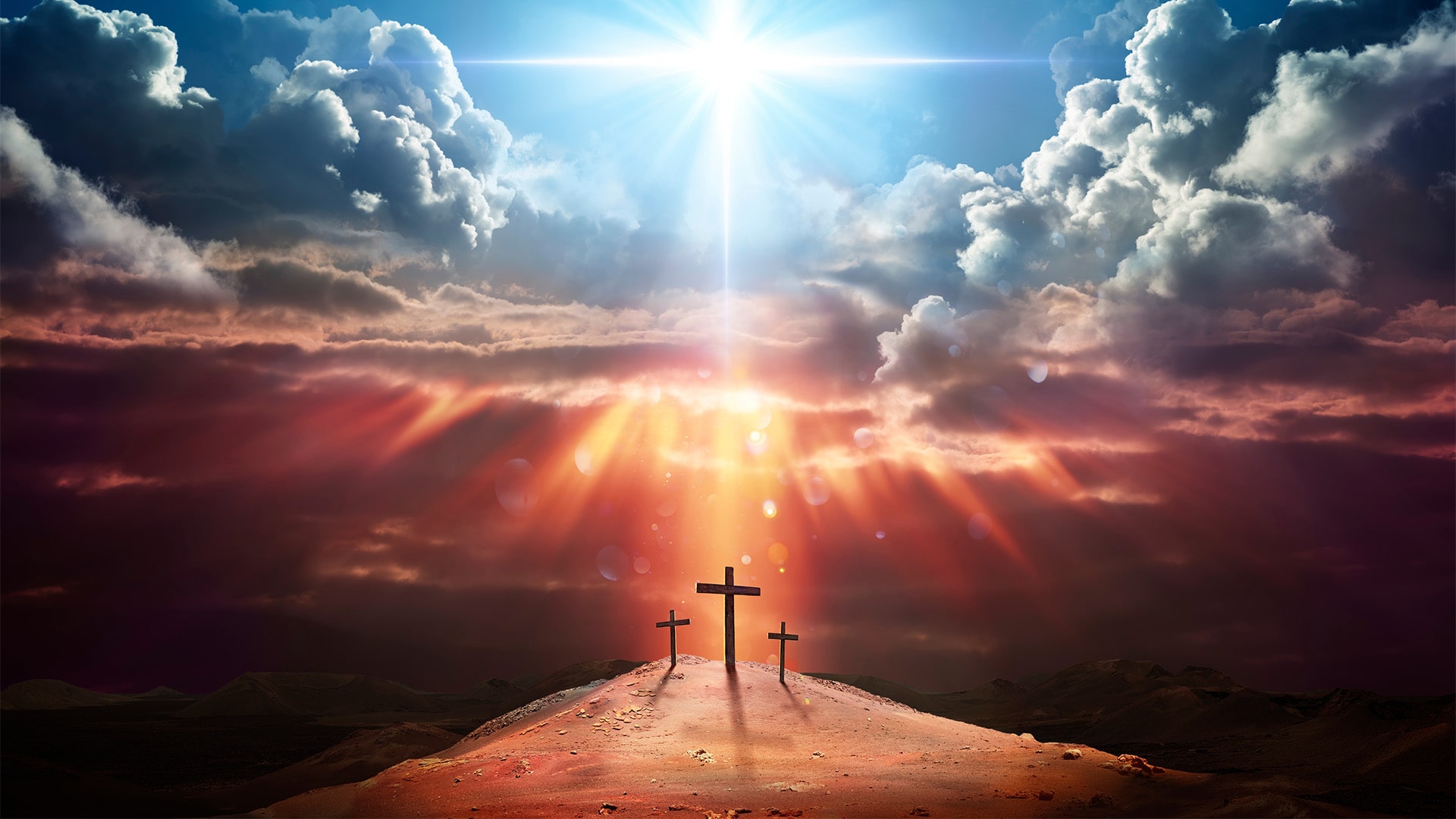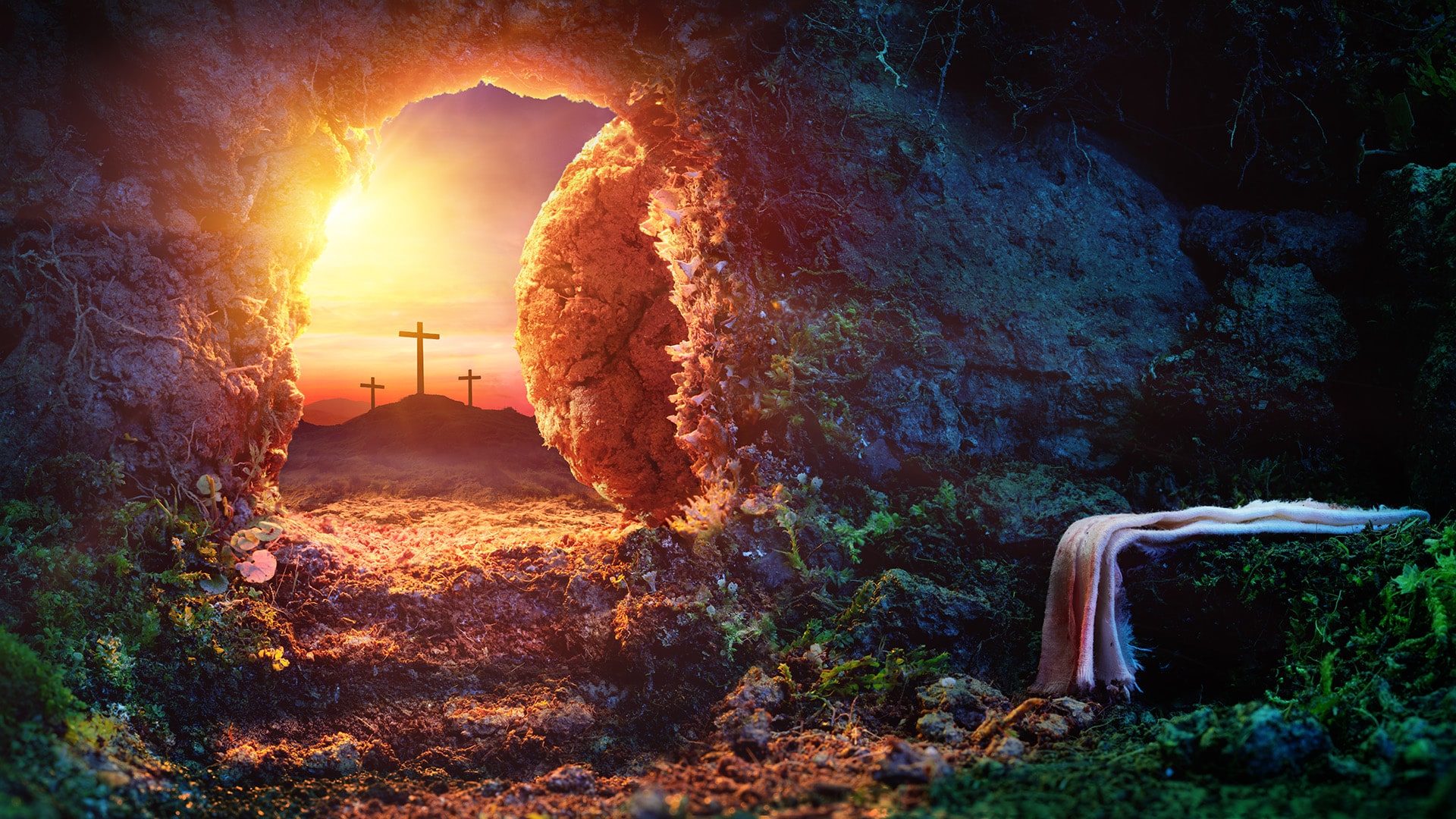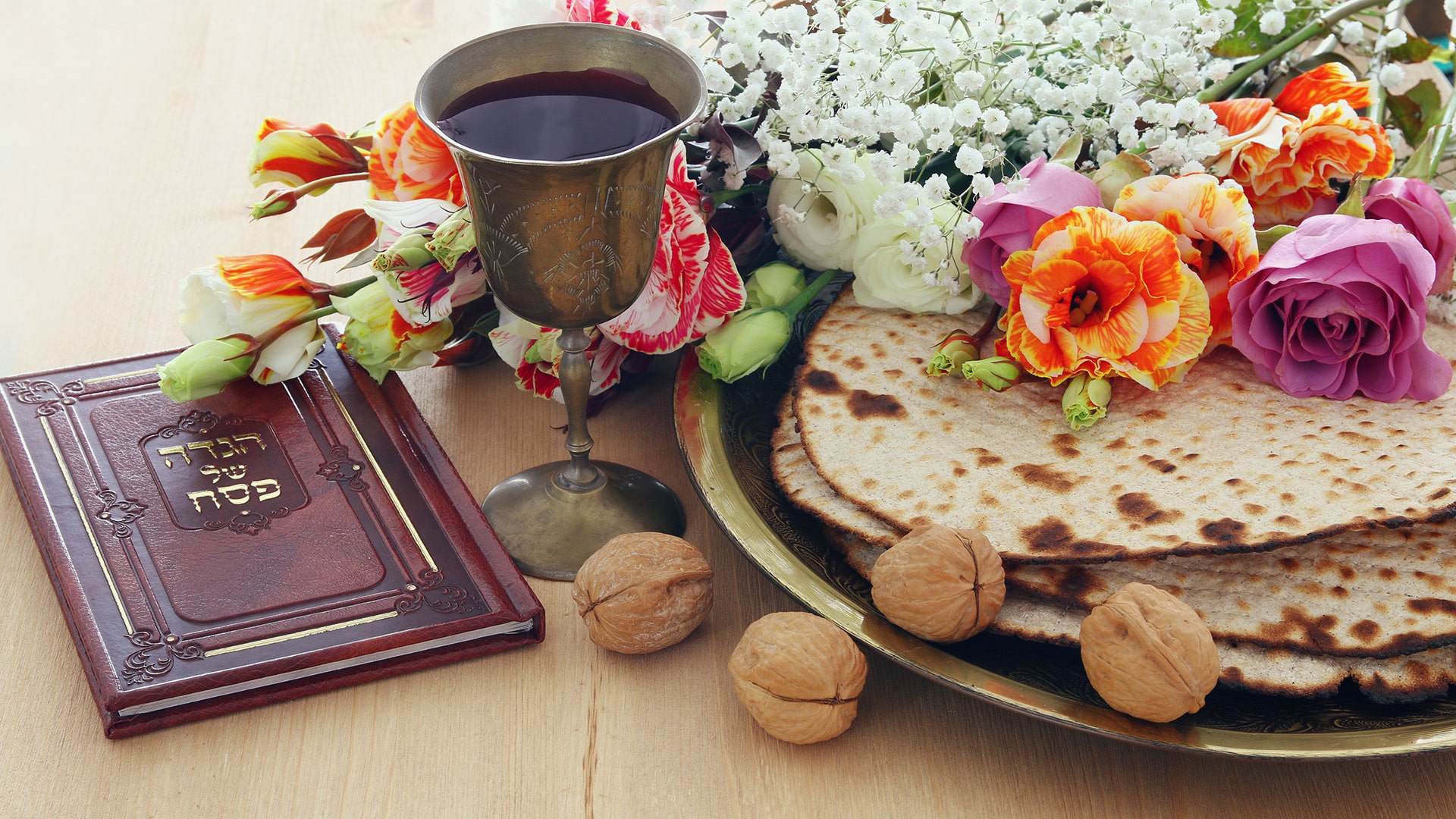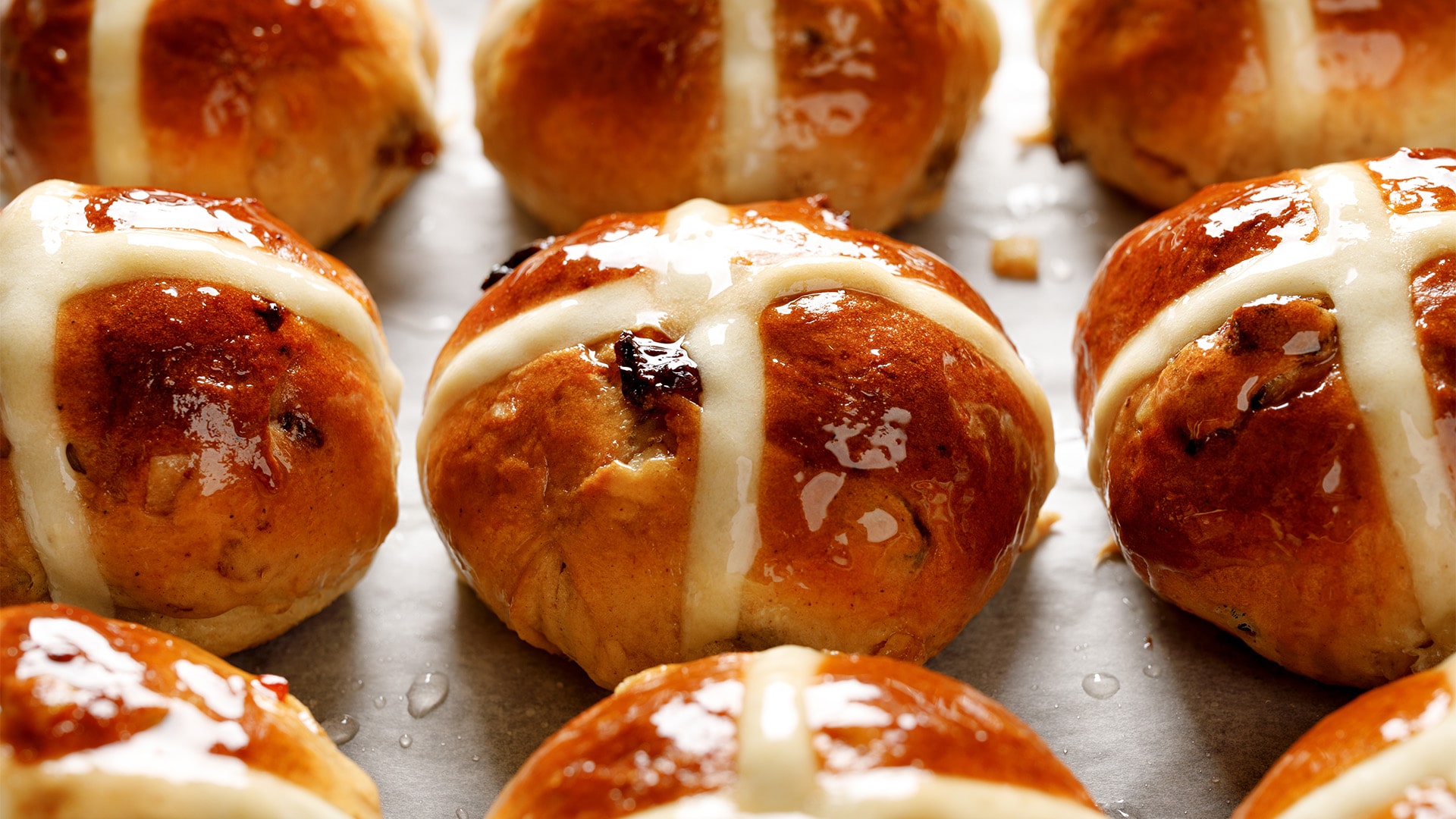
Read more about Popular Culture

This year, Easter Sunday falls on 5th April 2026. For many Christians, it's the most wonderful time of year, but for pretty much everyone else, it’s all about having a few days off work to overindulge in chocolate and confectionery, at some randomly appointed time at the beginning of spring. Or is it the middle? Who knows?
So, what is actually going on with Easter? Let’s answer all the questions you’ve ever had about Easter but were too afraid to ask.
The answer isn’t quite what you might expect, bearing in mind that Easter is about celebrating the life, death, and resurrection of Jesus Christ. In actual fact, Easter Day is set by the lunisolar calendar, which was created in Mesopotamia around 3000 BC. Note ‘BC’.
The lunisolar calendar is comprised of lunar months that have been adjusted to fit into solar years. Easter is determined by the Sunday following the first full moon after the vernal (or spring) equinox.
For example, in 2026, the vernal equinox is on 20th March and the following full moon is on 13th April. Therefore, Easter is on the 20th. I’ll repeat for emphasis, so you don’t forget:

This full moon is also known as the 'pink moon', better known in the Jewish calendar as the start of Pesach or Passover. This celebration remembers the Israelites' freedom from Egyptian slavery between 1300 and 1201 BC.
While all the adults only get two days off work on Good Friday (3rd April) and Easter Monday (6th April), most of the nation's children can get a full two weeks off school. Exact term dates alternate by school and region, but the Easter holidays in 2026 will likely fall between 30th March and 10th April. That's plenty of time for visiting family, doing homework and Easter egg hunts!
Unlike most holidays that occur on the same day every year, the date of Easter changes according to the lunar calendar. But which is the rarest Easter date? According to the Statista based on US census data, between 1600 - 2099, Easter will be marked on 24th March the fewest number of times while the most common Easter date will be either 31st March or 16th April.
Easter covers the seven days that surround Jesus Christ’s crucifixion at the hands of the Romans in Calvary in 30 AD. Known as Holy Week, it begins on Palm Sunday, the sixth Sunday of Lent. Palm Sunday gets its name from the palms waved as Jesus’ triumphantly entered Jerusalem, as specified in all four gospels, Matthew, Mark, Luke, and John.

Holy Monday and Tuesday are relatively unremarkable, but Holy Wednesday is also known as Spy Wednesday, to acknowledge the day that Judas Iscariot told the Romans of Christ's whereabouts in exchange for 30 pieces of silver. Maundy Thursday commemorates the day of the Last Supper and the symbolic washing of the disciples’ feet. Good Friday we’ll get onto in a second, and we end the week with Holy (or Black) Saturday, before the resurrection on Easter Sunday itself.
Good Friday falls two days before Easter Sunday and, for many people, Good Friday just means a lie-in and a cheeky lunchtime pint or two. However, Christians recognise it as the day that Jesus Christ was crucified which is definitely anything but good!
In Old English, the word ‘Holy’ was ‘Hālig’ which means ‘wholeness’ or ‘good’. So, in English at least, ‘Good Friday’ is actually a rather clumsy way of saying ‘Holy Friday’.
The first moon in spring, marked longer, warmer days and the return to a more bountiful existence. In the days before central heating and instant soup, spring was as much about having survived winter as it was about celebrating new life.
Subsequently, ancient cultures across the globe worshipped spring through their gods and goddesses: Ishtar from Assyria, Astarte from Phoenicia, Demeter from Mycenae, Hathor from Egypt, Aphrodite from Cyprus, and Ostara of Scandinavia. In the case of the latter, the name Ostara means ‘spring’ in paganism and the word derives from ‘Eostre’ (where our word for Easter comes from), the Anglo-Saxon goddess who was even mentioned in the fifth-century writings of the Venerable Bede.
A quick, related, note on hot cross buns, traditionally eaten on Good Friday. The pagans also celebrated spring by decorating bread and cakes with a cross, arguably to symbolise the horns of the Ox, the animal the pagans were believed to have sacrificed to Eostre. Meanwhile, the word 'bun' derives from the Anglo-Saxon word 'boun', which means 'sacred ox'.
In most European countries, the name for Easter derives from the Hebrew word 'Pesach'. Passach or 'Passover is a Jewish holiday that celebrates the the Israelites escape from slavery in Egypt which is recounted in 'Exodus' the second book of the Torah and the Old Testament. Wheras in English and Germany-speaking countries, the word is said to derive from Ē ostre, the Anglosaxon goddess of Spring who first referenced to by the Venerable Bede in the 8th century in his in De Temporum Ratione.
Only Christians view Easter as a religious holiday, but many other cultures and religions acknowledge the beginning of spring with festivities. For example, in Egypt, the spring festival is called ‘Sham el-Nessim', a day that the Ancient Egyptians celebrated as the beginning of world creation. In Iran, the spring/new year festival is called ‘Nowruz’ and, in the Punjab and parts of Pakistan they celebrate spring with ‘Basant’, a festival typified by kite flying and yellow flowers.
Islam marks the beginning of ‘Ramadan’ during early spring, a month-long period of fasting and prayer. Hindus and Sikhs celebrate ‘Vaisakhi’ on 13th or 14th April with colourful events and feasting to mark the beginning of the solar new year. In large parts of Asia, they celebrate the Buddha’s birthday, or ‘Buddha Jayanti’, by gathering at temples and lighting lanterns. In Japan, Buddha figurines are ceremonially washed with tea.

Eggs have long symbolised new life and fertility. Romans and early Christians considered eggs to be the seeds of life, though, for Christians in particular, eggs are commonly associated with re-birth to commemorate the resurrection. Christianity also forbade eggs during Holy Week, and in some quarters they were banned for the whole of Lent. Therefore, any eggs laid during this period of abstinence were saved up until Easter when they were gratefully received as little objects of desire in their own right.
This inspired the Victorians to stuff satin-covered cardboard eggs full of treats and give them as gifts. and, By the end of the 19th century, the first chocolate eggs began to appear in France and Germany.
However, the giving of eggs as gifts isn’t exclusive to Western traditions. The Chinese have been giving each other painted eggs as springtime gifts for over 5000 years and in Egypt, devotees eat coloured eggs to celebrate ‘Sham el-Nessim'. Decorated eggs are also a significant part of Nowruz, the Persian new year.
As for the Easter Bunny, the sighting of young, overenthusiastic rabbits and hares bouncing about in spring made them an obvious choice as pagan symbols of fertility.
From delicious baked treats to unusual sporting events, the British have marked Easter in all kinds of ways over the centuries. Here are the stories behind some of the most interesting (and sometimes mouthwatering) traditions.
Warmly spiced and dotted with dried fruit, hot cross buns have been eagerly devoured as part of Easter celebrations for a very, very long time. As a London periodical wryly noted in 1836, ‘This is the season at which all good Christians devour hot cross buns for breakfast, under the comfortable impression that a religious duty is being performed.’
The precise origin of the hot cross bun is hazy, with accounts of similar treats going right back to the Ancient Romans. Many believe that contemporary hot cross buns evolved from the Alban bun, first baked by a monk named Brother Thomas Rocliffe at St Albans Abbey in around 1361.
Flavoured with currants and an aromatic, cardamom-like spice called grains of paradise, these buns were distributed to the poor on Good Friday and are still proudly made at St Albans Cathedral today.
Hot cross buns became oddly controversial during the reign of Elizabeth I, when their sale was banned except on Good Friday, at funerals, or at Christmas. The exact reason for this seems to be lost in time, but they may have been considered too holy to be scoffed on just any old occasion. It’s also possible they were regarded as politically unsound, evoking the rituals of Catholicism.

Another sweet concoction traditionally associated with the season is Simnel cake. Unlike the hot cross bun, which is eagerly sold by supermarkets and bakeries across the land, the Simnel cake has fallen into relative obscurity – perhaps because it doesn’t really lend itself to being eaten as a tasty breakfast.
This traditional treat is a fruit cake layered with marzipan or almond paste and topped with balls made of that same paste. Typically, there are 11 balls, symbolising Christ’s apostles (minus the traitor Judas Iscariot).
Simnel cake has existed since the medieval period and was originally associated with Mothering Sunday. Its name is thought to derive from the Latin word ‘simila’, which means ‘fine flour’.
That said, an old custom of boiling and then baking the dough also inspired a curious origin story about a mythical couple named Simon and Nell who disagreed about how to make a cake (boiling vs baking) and agreed to do both. Simon + Nell = Simnel, apparently.

We touched on the symbolism of Easter eggs above, but who can we credit with the tradition of hiding eggs for children to find? A rather lofty and forbidding figure, as it turns out.
Historians have traced this fun Easter game to none other than the German Protestant reformer Martin Luther, who would have male members of his congregation hide painted eggs for the women and children to seek out.
Another major historical figure who was fond of Easter egg hunts was Queen Victoria, who may have helped popularise the activity in Britain. As a 14-year-old Princess Victoria would note in her diary, her German-born mother put on hunts for ‘painted and ornamented eggs’ at Kensington Palace.
Years later, Victoria and Albert would organise such hunts for their own children, with the Queen writing that the Easter pastime was their ‘greatest delight’.
The Easter period has long been associated with a plethora of sports and games throughout the country, from archery contests to hare hunts. Writing in 1892, folklorist Charles J. Billson notes that ‘the custom of eating the Easter hare is… among those ceremonies which bear most openly the marks of their original paganism’.
Billson describes how one prominent ceremony, the ‘hunting of the Easter hare at Leicester’ was a tradition that lasted until the mid-18th century. It was a ‘mock-hunting of the hare’ because the actual target was a dead cat, soaked in aniseed water and attached to the tail of a horse. On Easter Monday, a pack of hounds would follow the scent of the unfortunate feline through woodland while crowds of onlookers gave ‘shouts of rapture’.
Another tradition that’s been around for centuries and is still going strong is ‘Uppies and Downies’, a handball-style game in Workington, West Cumbria. Consisting of three matches over the Easter period, it sees residents split into two teams (the ‘uppies’ and ‘downies’) which compete to get the ball to the opposing team’s goals in different parts of the town. It’s a joyously chaotic free-for-all, though things have sometimes got out of hand with deaths of players reported in 1828, 1882, 1932 and 1983.
Taking its name from ‘paschal’, a Latin word denoting Easter, Pace Egg plays were once a widespread phenomenon in towns and villages in the north of England. They would see local people dress up in flamboyant costumes to play heroes and villains, fighting each other and chanting rhymes for the amusement of onlookers.
Other characters commonly included a fool, a quack doctor, a lady, and a comical older woman similar to a pantomime dame. Indeed, Pace Egg plays can be thought of as proto-pantos, marking Easter rather than Christmas.
Although the tradition faded out in the Victorian era, Pace Egg plays were revived in some parts of the north in the latter half of the 20th century and can still be seen in various communities today.